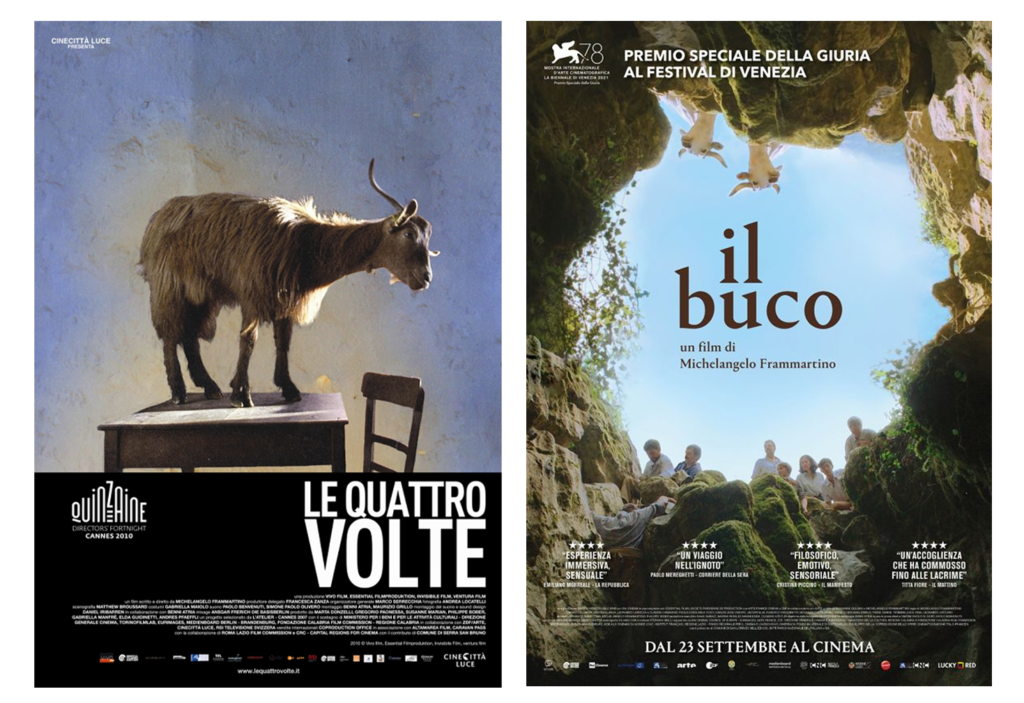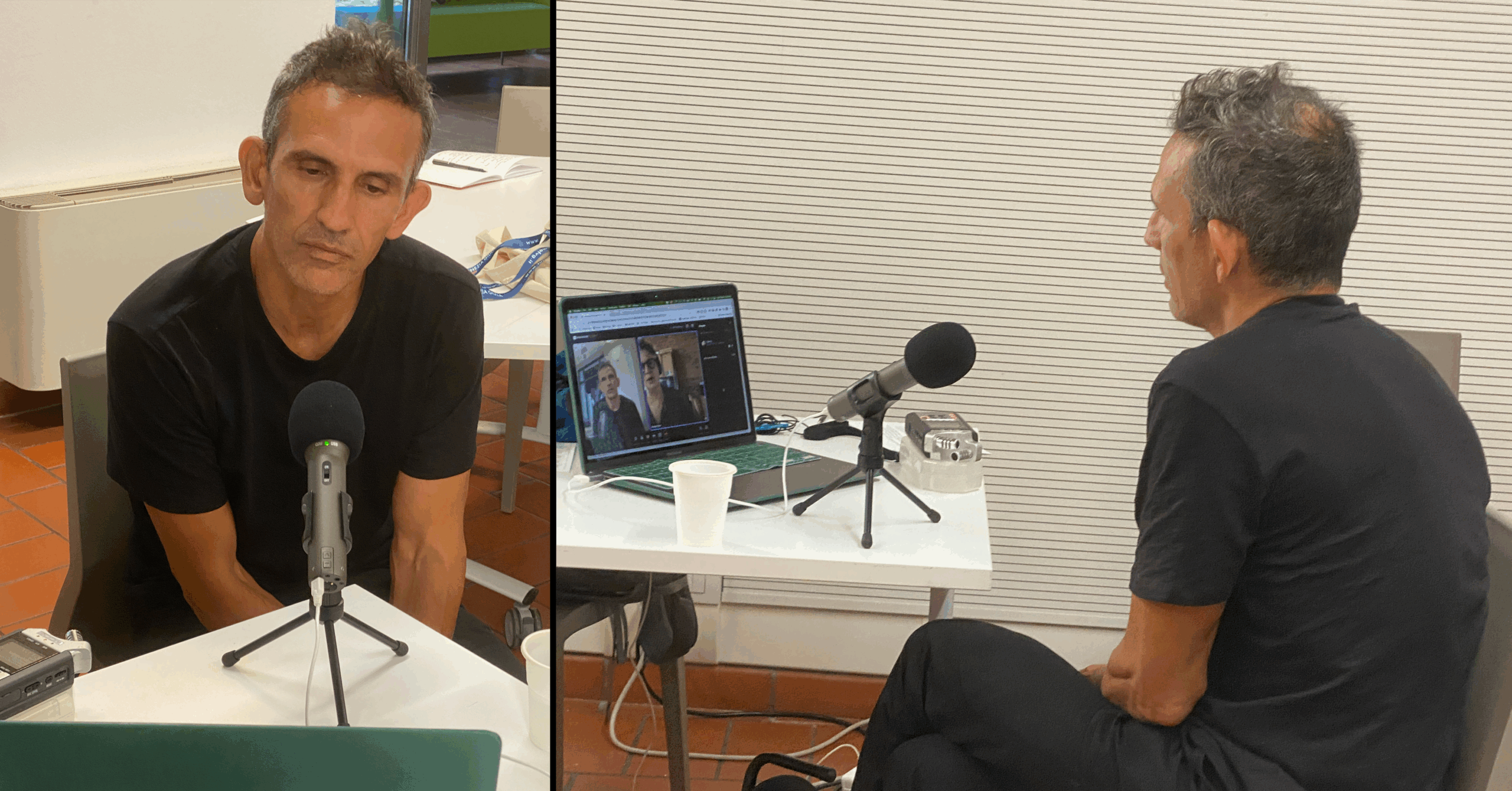Alisa interviews the acclaimed Italian filmmaker during his appearance at the Visible Evidence conference in Udine, Italy.
Show Notes:
It seemed only natural that we chose to interview a filmmaker taken by the Pythagorean idea of the four elements that make up the human—three of which, Animal, Vegetable, Mineral, comprise our podcast’s title. Of the interviews for our series, this one is, in some sense, the closest to this podcast’s concerns about the relationship between documentary film and the world—and in particular, the ways in which film can decentre the human and attune us to all of the elements equally, something that the Italian filmmaker, Michelango Frammartino, is particularly alive to.

We caught up with Frammartino in the Summer of 2023, when he was attending the Visible Evidence conference in Udine, in the north of Italy. Visible Evidence is an annual documentary film studies conference and that year Frammartino was one of its keynote speakers. At the conference, Frammartino screened his latest film, Il Buco (The Hole) (2021) and we discussed his unique approach to this film and to his earlier work, Le quattro volte (The Four Turns). Frammartino, often referred to as an adherent of “slow cinema,” is passionate about resisting the dominance of the human perspective, not only in the visual aspect of cinema, but also in the way the audio is designed. Like many documentary filmmakers, he prefers that reality dictates the terms of his filming, and yet, he does not necessarily think of himself as a documentary filmmaker—preferring to think more holistically about cinema with no clear distinction between fiction and nonfiction. While he limns the border between control and lack of control, he describes his strategies to remain open to what comes, rather than playing god and attempting to control the entire scene. Through his philosophical approach he attempts to find a balance with nature and the world.
In the episode, Alisa Lebow asks Frammartino to shed light on some of the unique technical challenges to filming Il Buco, an historical reenactment of the 1961 discovery of one of the deepest vertical caves in Europe. Filmed in the near total darkness and cramped space of the cave, while suspended on ropes and lit with period accurate gas illuminated headlamps, the film is a masterful feat of technical achievement that hovers between the seen and unseen—suggesting the absolute limits of cinema. And, while the film is a recreation of the original cave discovery—complete with era appropriate costumes and lighting technology—the film’s incontrovertible documentary aspects are dictated by its extreme shooting conditions. In the interview, Frammartino also describes the unusual ways that he worked with the renowned cinematographer, now in his 70s, Renato Barta. Towards the end of the conversation, Frammartino describes his love of spelunking and his interest in the correspondence of the “discoveries” of cinema, speleology, and the unconscious—all of which can be traced to the year 1896.
In short, Frammartino takes us on a journey into his unique philosophy of cinema, one that leads us into the depths of the earth and to the perceptual limits of what can be seen and heard—to the elemental play of light and dark that is cinema.
Just a note, when Frammartino refers to a “dispositif”, as when discussing the use of particular lighting “dispositifs” he is using the French word for “device”.
Filmography:
- Le quattro volte (Michelangelo Frammartino, 2010)
- Il buco (Michelangelo Frammartino, 2021)
- La bocca del lupo (Pietro Marcello, 2009)

